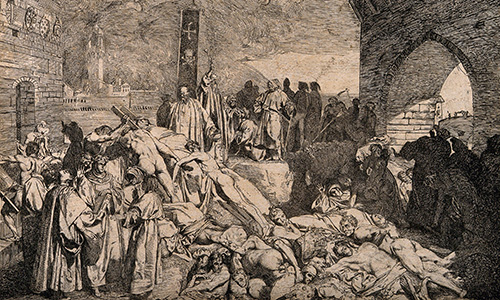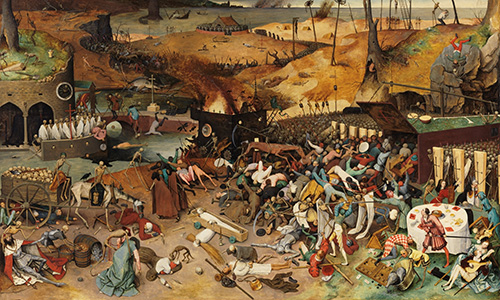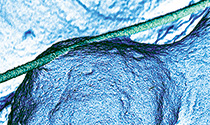|
|
|
|
|
|
| |
There’s much to be learned from pandemics—scientifically, socially, politically—but it’s not easy to see the big picture while still in the midst of an evolving health crisis. So we look to the past. Our ancestors who lived and died through plagues can offer us insights to our present and future challenges. |
|
| |
|
|
|
|
|
| |
Legacy of the Black Death |
|
| |
|
|
|
|
|
| |
| |
|
|
| |
Image: The plague of Florence in 1348, as described in Boccaccio's Decameron. Etching by L. Sabatelli. Wellcome Collection. Attribution 4.0 International (CC BY 4.0) |
|
| |
|
|
|
|
| |
|
|
|
| |
The Black Death, a bubonic plague that killed up to 50 percent of the people across North Africa, Europe, and Asia in the mid-1300s, played an important role in the evolution of the human immune system. |
|
| |
|
|
|
|
|
|
|
| |
A history of health crises |
|
| |
|
|
|
|
|
|
|
|
|
|
|
|
|
|
|
| |
A plague on all our houses |
|
| |
|
|
|
|
|
| |
| |
|
|
| |
Image: Pieter Bruegel the Elder, The Triumph of Death, 1562–63, oil on panel, 117 x 162 cm, Museo Nacional del Prado, Madrid |
|
| |
|
|
|
|
| |
|
|
|
| |
Bubonic plague, cholera, influenza, and HIV-AIDS have “challenged human beings and transformed the ways that we have lived, worked, loved, and clashed.” |
|
| |
|
|
|
|
|
|
|
|
|
|
|
|
|
|
|
| |
| |
Visit the Alumni & Friends website for stories, podcasts, and other features, curated for you on UChicago Review. Create an account for a more personalized experience. |
|
|
|
| |
|
|
|
|
| |
| |
Sign up to receive µChicago monthly. |
|
|
|
| |
|
|
|
|





